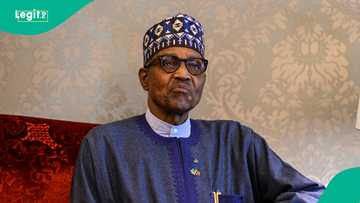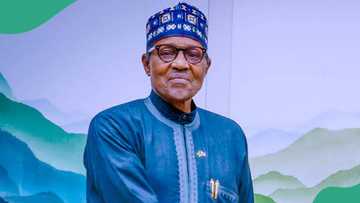Baba Buhari’s Legacy: Between Reverence and Reckoning, by Titilope Tawakkaltu Anifowoshe
Editor’s note: In this piece, lawyer Titilope Anifowoshe examines Buhari’s passing thoughtfully, weighing his personal integrity and austere lifestyle against the shortcomings and controversies of his leadership. She also shows what that mixed legacy says about Nigeria’s political expectations and challenges ahead.
On July 13, 2025, Nigeria received the news of the passing of President Muhammadu Buhari, a former military ruler turned two-term democratically elected president. Unsurprisingly, his death reignited a firestorm of commentary: from unfiltered grief and quiet respect to searing criticisms and rehashed grievances. In life, Baba Buhari was a polarizing figure; in death, he remains no less so.
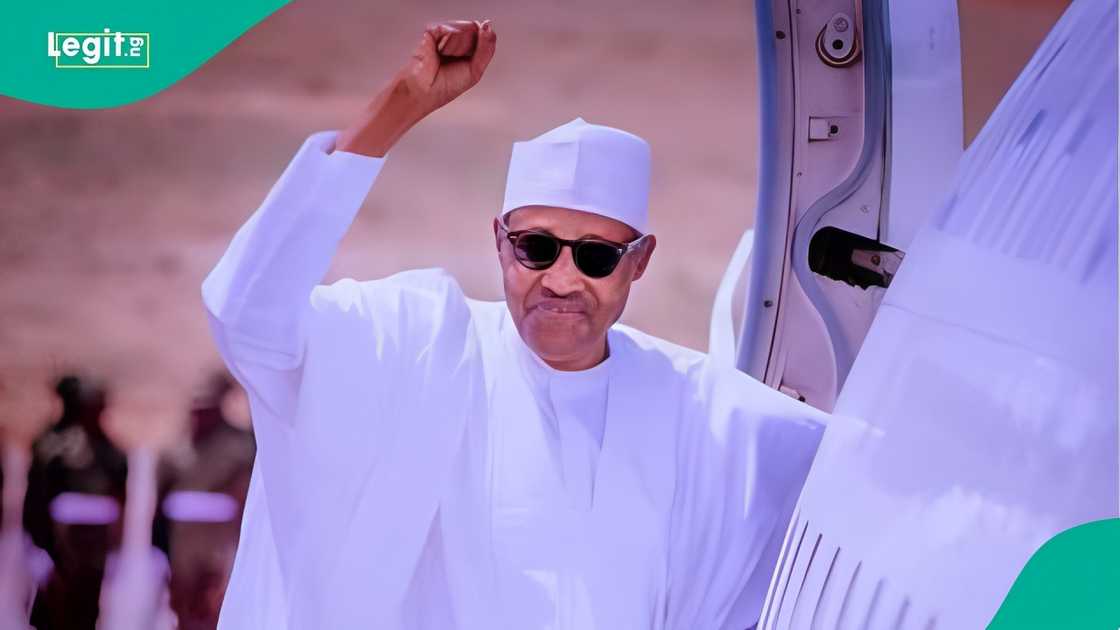
Source: Twitter
But perhaps it is precisely in moments like this, amid the noise of celebration or condemnation, that a sober, less emotive reflection becomes most needed.
President Muhammadu Buhari’s imprint on Nigeria spans decades. From his early days as a Brigade Commander in the 1970s to his time as Military Head of State (1984–1985), and later as Nigeria’s civilian President from 2015 to 2023, he remained a constant feature in our national consciousness.
Pre-2015, Baba Buhari was almost mythologized by a section of the populace. We saw in him a moral corrective, a strict disciplinarian with Spartan values, untouched by Nigeria’s notoriously corrupt elite culture. He contested for president thrice and failed, but on his fourth attempt, in 2015, he emerged victorious, defeating an incumbent, an unprecedented feat in Nigeria’s democratic history.
It was a moment that symbolized hope for many. Yet, as history would show, hope is one thing; governing a fractious, complex nation like Nigeria is quite another.
Criticism of Baba Buhari's presidency is neither new nor baseless. Under his leadership, Nigeria slid into two recessions. The economy shrank, inflation ballooned, the naira crumbled, and insecurity took frightening new forms, from banditry to mass school abductions. The handling of the EndSARS protests in 2020, the Twitter ban, and allegations of state overreach left many youths disillusioned and angry.
Even his much-touted anti-corruption war was marred by accusations of selective justice, with key figures in his government entangled in corruption scandals. Court orders were sometimes disregarded.
But it is intellectually dishonest to pretend there was no progress at all.
The Buhari administration laid down numerous tangible infrastructural projects. The expansion of the railway network, significant road constructions, improved pensions, and social investment programs aimed at lifting the most vulnerable. While these did not magically transform Nigeria, they are milestones that future administrations can build upon.
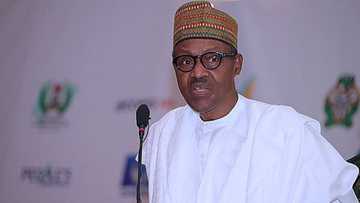
Read also
Muhammadu Buhari's net worth and assets: A look at the wealth of Nigeria's former president
And for all his alleged authoritarian leanings, Baba Buhari left office peacefully in 2023, refusing to tamper with the constitution or cling to power; a gesture many still undervalue in a continent where leaders often die in office or resist transitions.
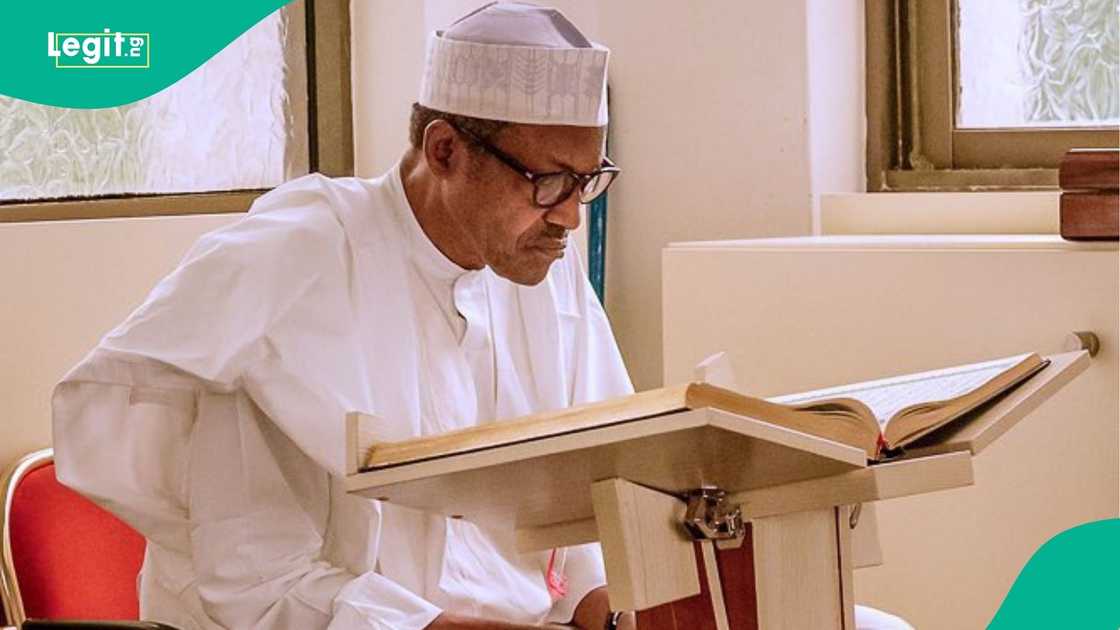
Source: Twitter
In an era where many African leaders are synonymous with luxury, offshore accounts, and palatial estates, Baba Buhari’s austere lifestyle stands out. No one credibly accused him of personal enrichment. No evidence surfaced of him siphoning the nation’s wealth for personal use. He did not own mansions across the globe, nor did he indulge in opulence while in power. In that, Baba Buhari retained a moral mystique that is both admirable and perplexing.
And so the question arises: How does a man so reputed for personal integrity fail to produce a government that reflected the same? Is this a tragic flaw in Baba Buhari himself, or is it a reflection of the structural rot and resistance within the Nigerian system? Or was he, perhaps, the embodiment of the legal maxim: Nemo dat quod non habet - one cannot give what one does not have?
Buhari’s death at 82 closes a long chapter in Nigeria’s post-independence history. A military man, a former oil minister, a governor, and a two-time head of state. His résumé reads like a national archive. But in the final analysis, the Nigerian public will continue to debate what his leadership ultimately delivered.
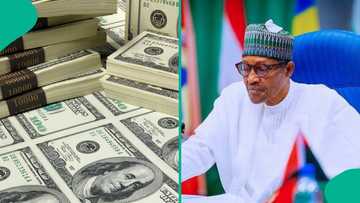
Read also
Buhari’s wealth and money in his bank account as declared in his first and second terms released
Yet death, if nothing else, demands a shift from judgment to reflection.
Can anyone truly carry Nigeria’s burden without faltering? How do we measure leadership in a country where ethnic, economic, and political interests constantly tug in opposite directions? And what does it say about us, as a people, that even the leader with the least taste for personal gain still could not satisfy our definitions of greatness?
It is not for us to play God or pronounce eternal verdicts. Buhari has returned to his Creator, as all mortals must. As a Muslim, I am taught to pray for the dead, not condemn them. Leadership is no easy road, and while we must hold our leaders accountable, we must also approach their memories, especially in death, with perspective and humility.
Buhari’s story is a mirror of our expectations, our disillusionments, and the complexity of Nigerian leadership. Perhaps the lesson is not just about what he failed to do, but what we must now learn to do differently.
May God Bless Nigeria!
Titilope Anifowoshe is a lawyer and Ambassador of Politics With Value. She writes from Lagos, Nigeria. titilopeanny@gmail.com
Disclaimer: The views and opinions expressed here are those of the author and do not necessarily reflect the official policy or position of Legit.ng.
Source: Legit.ng

Ololade Olatimehin (Editorial Assistant) Olatimehin Ololade is a seasoned communications expert with over 7 years of experience, skilled in content creation, team leadership, and strategic communications, with a proven track record of success in driving engagement and growth. Spearheaded editorial operations, earning two promotions within 2 years (Giantability Media Network). Currently an Editorial Assistant at Legit.ng, covering experts' exclusive comments. Contact me at Olatimehin.ololade@corp.legit.ng or +234 802 533 3205.

Titilope Anifowoshe (Lawyer) Titilope Anifowoshe is a legal practitioner, author, and development consultant. She is an advocate of politics with values and SDGs. She is the Founder and Executive Director of Eagles Foundation for Humanity, COO, Citizens Hub and Co-Convener of For Citizens Alliance.


